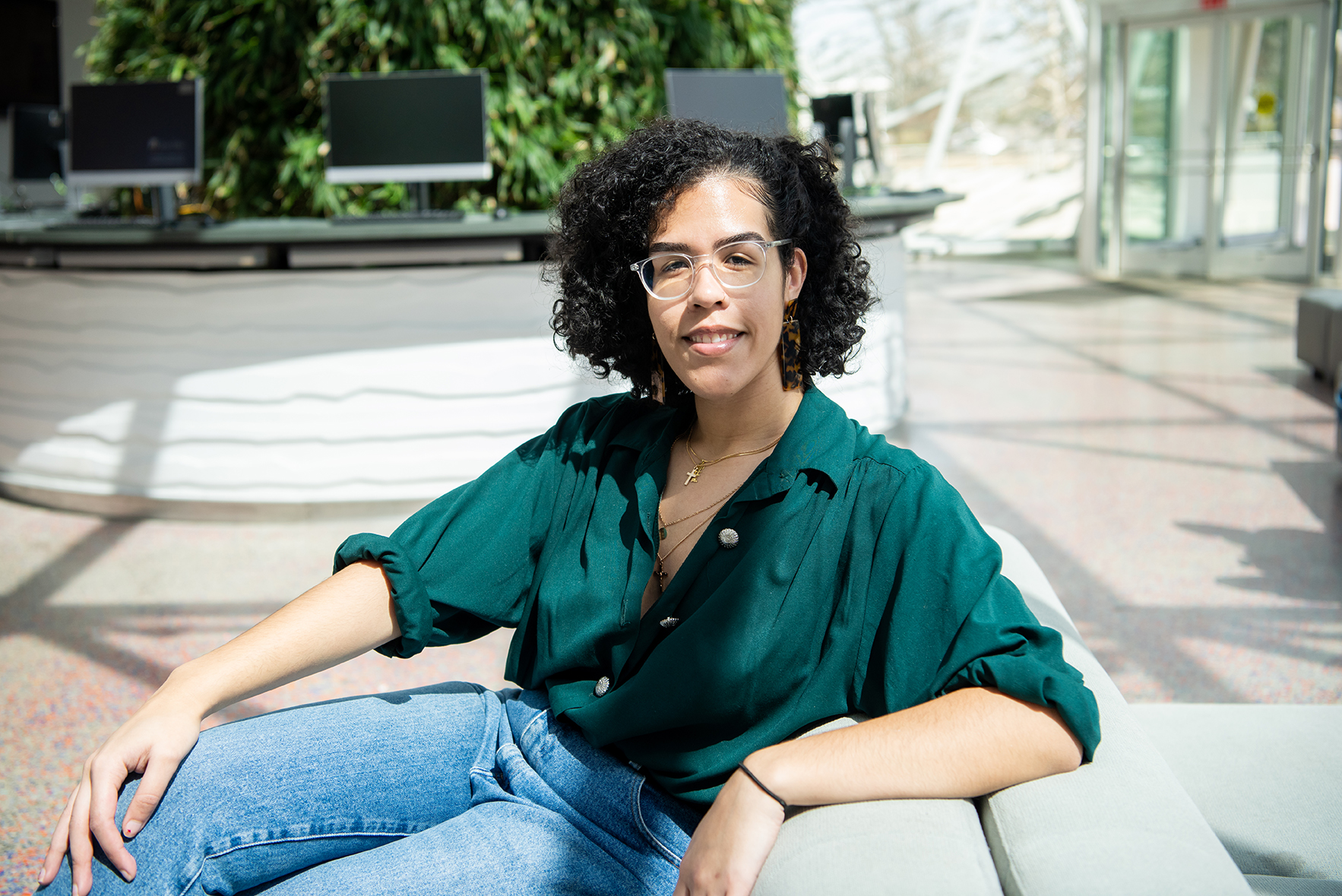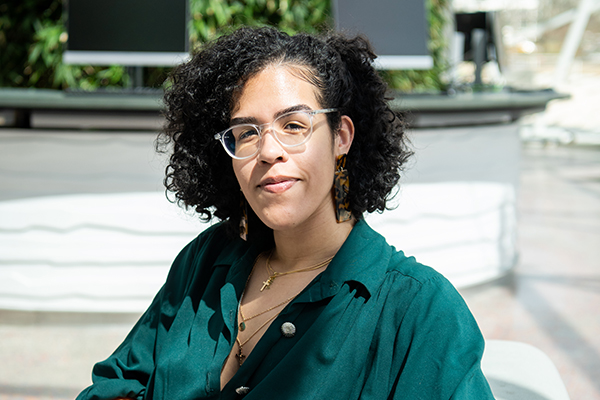Senior’s thesis on Afro-Latinx trauma earns top prize in national essay contest

Not long after Justine Veras ’19 (Black Studies; Women’s, Gender & Sexuality Studies) began researching transgenerational trauma, she realized that the field seemed to have a blind spot for the experiences of Afro-Latinx women.
“Theories about the connections between trauma and behaviors that are passed from one generation to another mostly focus on the Holocaust and a few other events,” Veras said. “They haven’t really been synchronized with the experiences of Afro-Latinx women.”
Veras grew up in West Haverstraw, New York, a small, majority-Dominican community in Rockland County. A first-generation college student, she transferred to New Paltz after earning her associate’s degree, and built a curriculum that worked for her as a double major in Black Studies and Women’s, Gender & Sexuality Studies.
“One class that stands out is ‘Blacks in the Caribbean’ with Dr. Cruz Bueno,” Veras said. “It’s basically about the history of Haiti, Cuba and the Dominican Republic, and how narratives of anti-blackness have been pushed throughout the Caribbean. I’ve also loved everything with Dr. Jessica Pabón, especially ‘Feminist Theory’ – it was super intense, but I’m really into theory and thought it was great.”
Veras first began studying the topic of intergenerational trauma in Assistant Professor Bueno’s senior seminar, and continued working on her thesis after completing that course. The expanded work was more than 20 pages long when Bueno suggested Veras submit it to the Terry Kershaw essay contest, a prestigious competition held annually by the National Council for Black Studies.
The paper succeeded in large part due to Veras’ skill at synthesizing material from her dual majors, and sprinkling in insights drawn from personal experience.
“I brought in things that I had studied in previous classes, like ideas about women’s bodies from my gender studies courses, and black experiences of slavery and colonialism from my Black Studies courses,” Veras said. “This is something that I want to study further, but beyond that I think this is just part of my identity, and something that’s always with me.”
Shortly after she learned about her win in the Kershaw contest, Veras got more good news: she was accepted to a fully funded master’s program in gender studies at the University of Florida.
As she looks to advance her career as a scholar, Veras has been reflecting on how her work on this essay influenced her approach to research and writing.
“I’m allowing myself to express myself more freely,” she said. “Academia doesn’t always give you room to think through your emotions, because it’s so often focused on thinking through the mind. But I think it’s important and valuable to include your emotions in your writing. Your feelings and experiences can give your argument credibility that it wouldn’t otherwise have.”

